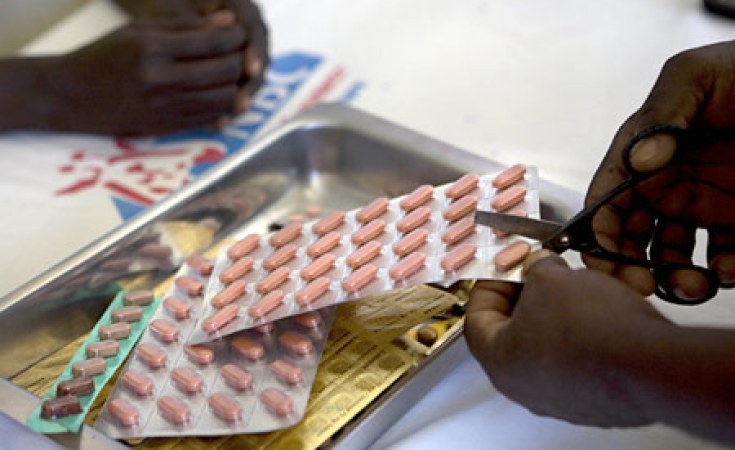TUBERCULOSIS survivors have taken an active role in the identification of cases in their communities as part of efforts to improve the national response to the disease.
Those cured of the disease, who have been integrated into the local clinics where they stay, have been instrumental in ensuring that missing TB cases are identified and patients start treatment.
Speaking at a TB survivors' stakeholders meeting in Harare's Dzivarasekwa suburb last week, Sister Fransisca Hore, a registered general nurse at Rujeko polyclinic opportunistic infections department, said survivors were key to the national TB response as they were better placed to encourage others to get screened.
"We have these health promoters and TB survivors who have been helping us in identifying people with symptoms of TB. They have a screening tool which they use to identify someone who could be a TB patient. So if they see someone who has been coughing, has experienced high body temperature, night sweats or weight loss, they speak with them and convince them to get screened then refer that person to us for further investigations," she said.
Sister Hore said this had resulted in an increased rate of case identification as well as better management of cases to avoid default on treatment.
The survivors, who fall under the purview of the Stop TB Partnership Zimbabwe, a network of all partners dealing with TB in Zimbabwe, have received training from Jointed Hands welfare organisation to be able to provide the services.
JHWO advocacy, communication and resource mobilisation officer Ms Melody Mukundwi said survivors had the power to shape the response to TB.
"We support them in partnership with the Ministry of Health and we build their capacity for them to be active in the TB response. From the experience they got from surviving the disease, they have the power to shape the TB response so that it can meet the needs of the people who are affected by TB. They are better able to fight stigma and discrimination that is associated with TB, to raise awareness around TB and to give psycho-social support to those who are currently battling the disease so that they are motivated to remain on treatment. They can also do contact tracing where they visit affected families and get the family members to be screened as well. They also help to make sure that there is early detection by finding those people who are missing who have TB. If we continue working with them we can end TB," she said.
Zimbabwe has a high burden of TB and continues to be among the top 10 countries double burdened with TB arising from immune system loss through HIV and MDR-TB.
According to statistics, over 12 000 people living with TB were missed and not initiated on treatment in 2021.
Zimbabwe National Network of TB Survivors Harare province chairperson Mr Stanely Sibanda said it was their mission to ensure that all TB cases in their communities were identified.
"We are working in clinics to make sure that people get screened and those who are diagnosed get the proper care. We also do home visits, where we see how people are staying in their homes and if the environments they stay in are clean. We also look at how TB patients are protecting those they stay with. We have also tried to make sure that those providing care for patients get TB preventive therapy to protect them from contracting the disease," he said.
Mr Sibanda said the organisation had formed support groups where they provided each other with the much needed psychosocial support while also coming up with ways of getting more people screened.
"This has been helping to identify people we see in the communities. We have quite a number of people we identified and after educating them, they got tested and were initiated on treatment. So if we find suspected cases we take them to the clinic and they get treated".
Mr Sibanda said the groups had also created a network to link patients to health facilities that had stocks of the required medicines in cases where there were shortages.
Ms Amanda Sambadzai from Chitungwiza said she had survived TB and the stigma surrounding it and was committed to helping others survive as well.
"I was diagnosed with TB in 2003, and I went on treatment. In 2008 I started losing weight and my chest would become painful from very little activity. I didn't believe I could have contracted TB again. I was admitted at Chitungwiza hospital and the doctor did a chest x-ray and they found out I had TB.
"I cried because I knew I would have to go through the painful process of getting injections. I was referred to my local clinic where I got my 60 injections, one every day for two months.
"It was a difficult period and the pill burden was too much as I had to take 14 different types of tablets every day. I know how difficult this is so I am now a TB champion and I work at the local clinic where I help other TB patients," she said.
Another cured patient, Ms Felistus Machobani, from Hatfield said: "As a TB survivor, I work with those who would have been diagnosed. We give them psycho social support and encourage them to adhere to treatment. We even teach them about the importance of hygiene to minimise the spread of TB in the community. I have been there and I know how painful it is not to have support. We even talk to caregivers on how they can stay with a patient while also protecting themselves," she said.


